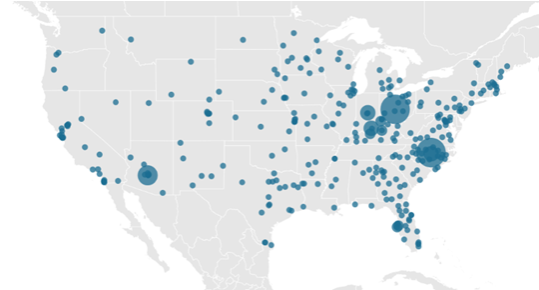
Nadine Brock
January 6, 2022

If you are in higher education, micro-credentialing is likely on your current roadmap or 2022 plan. This is one of the hottest topics right now for our clients and for good reason. The demand is high and higher education institutions are working to meet that demand.
Five steps to determine which short-term micro-credential you should be offering:
While online means you can receive your certificate anywhere, students still prefer and more often select a location close to home. That means your local employment needs directly impact demand. Specific skills of high need are the places to start your search.
The competition is stiff and similar with the change to offer more fully online programs, your institution needs to get into the short-term credential market and learn how to compete.
Employers are looking for more ways to train their workforce but also shifting benefits from office perks to growth and training. A partnership can provide a faster and lower-cost alternative to enrolling students.
With the demand shifts, it is not uncommon to have tenured faculty with only a few students in their program. This can create a complicated situation and one of the most successful solutions is evaluating how this faculty group can launch micro-certificates.
The short-term credential may open the doors to students who had not considered you before and provide a new recruitment pipeline.
Using Stamats’ analysis of the IPEDS Degree Completion Database, we would like to share insights and suggestions for your short-term certificate plan.
Business undergraduate certificates are the third largest undergraduate certificate discipline in the USA; what do you offer?
Specifically in Business disciplines, the following subjects or skill sets posted larger volumes in undergraduate certificates:
Stand out from competitors by highlighting that your institution teaches to the industry standards or association standards, such as SHRM HR-Certified Professional or Certified Financial Planner.
Institutions conferring computer and information science undergraduate certificates in the distance format.

Management Sciences and Quantitative Methods (CIP 52.13) Post-Baccalaureate certificates grew from 969 to 1,220 representing +33.4% in year-on-year growth (2019-2020). This is where some institutions are reporting their data analytics and big data certificates.
Data analysis and analytics skills are needed in a wide variety of occupations. Hopefully, your institution has a plan to prepare students from many disciplines in this area.
Special Education Post-Baccalaureate certificates (CIP 13.10) grew from 1,680 to 2,229 certificates representing +32.7% in year-on-year growth from 2019-2020.
Most K-12 school districts are always on the hunt for teachers with special education skills. State requirements for teachers differ greatly; some states require more education than a PB certificate.
Curriculum & Instruction Post Master’s certificates (CIP 13.03) grew from 912 to 1,061 (+16%) from 2019-2020. Additional education at the master’s level may help licensed teachers increase their salary or career options. Again, state requirements for master level education will differ so pay attention to what your State Department of Education issues for salary differentials.
Registered Nursing Post Master’s certificates (CIP 51.38) jumped 17% from 2,584 to 3,032 from 2019-2020. These certificates represent a wide number of specialties outside of Administration/Nurse Leadership. The Stamats research team can provide more detailed information on graduate nursing trends. As healthcare jobs become more specialized, your nursing programs may need to adjust with specialized fields of study in nurse practitioners.
Legal Research and Advanced Professional Studies Post-Master’s certificates (CIP 22.02) grew from 352 to 472 (34%) from 2019-2020. Certificates and Master of Legal Studies for non-JD professionals is a growing trend. A wide range of legal areas are covered by these programs, such as Labor Law, Business/Finance/Tax Law, Health/Healthcare Compliance, Environmental Law, Intellectual Property, and Cybersecurity. Regulatory compliance is followed by a variety of professions outside of law, so the need for additional training in specific areas of the law has increased.
Source: IPEDS Degree Completions 2020 (most recent data available).
Have a program you want to investigate? Ask our research team to help! We have access to student demand trends, labor data, and competitor trends.
Ready to Get Started?
Reach out to us to talk about your strategy and goals.